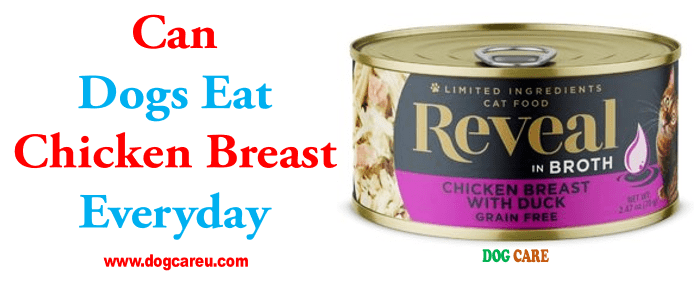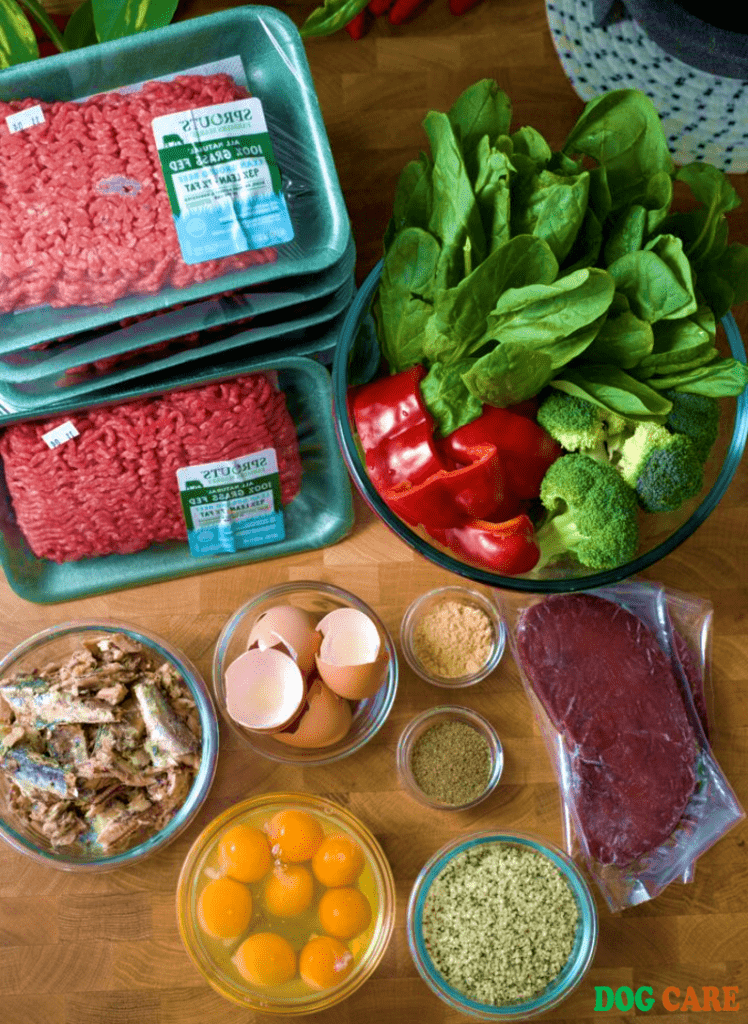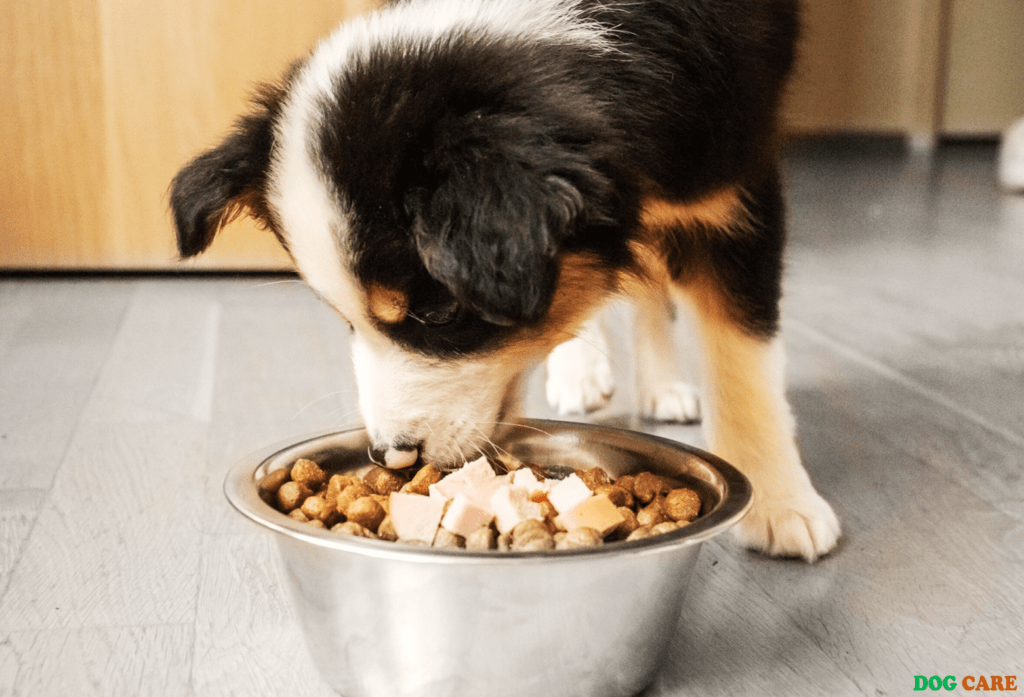Can Dogs Eat Chicken Breast Everyday ? Yes, Dogs Can Eat Chicken Breast Everyday, but it should be given in moderation and cooked without seasoning or bones to avoid any health issues. Feeding our furry companions the right diet is essential for their overall well-being.
With so many options available, it can be overwhelming to determine what is safe and healthy for our dogs. One often questioned food is chicken breast. Known for its lean protein content, chicken breast can indeed be a nutritious addition to your dog’s diet.
However, it’s vital to understand the guidelines for feeding chicken breast to your furry friend. This article will delve into the benefits and precautions of incorporating chicken breast into your dog’s daily meals, ensuring you make informed decisions about your dog’s nutrition. So, let’s explore the world of chicken breast and its suitability for your four-legged companion.

The Nutritional Benefits Of Chicken Breast For Dogs
Feeding your dog a well-balanced diet is crucial for their overall health and well-being. When it comes to protein sources, chicken breast is often considered a top choice. Not only is it readily available and affordable, but it also offers a wide range of nutritional benefits for your furry friend. Let’s explore the specific advantages that chicken breast brings to your dog’s diet:
Protein Content
Chicken breast is a fantastic source of lean protein for dogs. Protein is essential for the growth, repair, and maintenance of the body’s cells and tissues. It plays a vital role in building and maintaining strong muscles, supporting the development of healthy skin and coat, and promoting a strong immune system. Chicken breast contains a high amount of high-quality protein that is easily digestible for dogs, making it an excellent choice for their daily meals.
Vitamins And Minerals
Chicken breast is packed with essential vitamins and minerals that contribute to your dog’s overall health. It contains significant amounts of vitamin B6, which aids in brain development and helps regulate hormones. Additionally, it is rich in niacin, a vitamin that supports good digestion and proper nerve function. Chicken breast is also a good source of selenium, an important mineral that acts as an antioxidant, protecting your dog’s cells from damage.
Risks And Considerations
Feeding dogs chicken breast daily can pose risks and considerations to their health. While chicken breast is a good source of lean protein, excessive consumption may lead to dietary imbalance and potential exposure to antibiotic residues. It’s essential to consult with a veterinarian to ensure a balanced diet for your pet.
Feeding your dog chicken breast can be a healthy addition to their diet, but it’s important to consider some risks and factors before incorporating it into their daily meals.
Raw Vs. Cooked Chicken
When it comes to feeding your dog chicken breast, it is crucial to decide whether to serve it raw or cooked. Raw chicken can carry harmful bacteria such as Salmonella and Campylobacter, which can lead to food poisoning in dogs. On the other hand, cooking the chicken thoroughly kills these bacteria, making it safer for your pup to consume.
Bold: Raw chicken carries harmful bacteria that can cause food poisoning in dogs.
Potential Allergies
Just like humans, dogs can develop allergies to certain foods, including chicken. If your furry friend has never had chicken before, it’s best to introduce it gradually to monitor their reaction. Look out for signs of allergies, such as itching, vomiting, diarrhea, or skin irritations. If you notice any negative symptoms, it’s recommended to consult your veterinarian to determine if chicken should be avoided altogether.
Ordered List:
- Introduce chicken gradually into your dog’s diet to observe any allergic reactions.
- Watch out for symptoms of allergies such as itching, vomiting, diarrhea, or skin irritations.
- Consult a veterinarian if negative symptoms arise to determine if chicken should be avoided.
Bold: Monitor your dog for any allergic reactions and consult a veterinarian if symptoms arise.
How To Incorporate Chicken Breast Into Your Dog’s Diet
When it comes to incorporating chicken breast into your dog’s diet, it’s important to do so in a way that ensures proper portion control and utilizes safe preparation methods. Chicken breast can be a healthy addition to your dog’s regular meals when included in moderation. Here’s a guide on how to incorporate this lean protein into your dog’s diet.
Portion Control
Proper portion control is crucial when feeding chicken breast to your dog on a daily basis. It should only comprise a small portion of their overall diet, alongside other essential nutrients such as carbohydrates and healthy fats. For small to medium-sized dogs, a suitable portion of chicken breast may be around 1 ounce per serving, while larger breeds may require up to 2 ounces. It’s important to consult with a veterinarian to determine the appropriate portion size based on your dog’s breed, size, and activity level.
Preparation Methods
The preparation of chicken breast for your dog should be carefully executed to ensure it is safe for consumption. Prior to cooking, it’s essential to remove any excess fat, skin, and bones, as these can pose choking hazards or cause digestive issues for your pet. Simple cooking methods such as grilling, boiling, or baking without added seasonings or oils are recommended to maintain the natural benefits of the chicken breast. Avoid including any potentially harmful ingredients such as garlic, onions, or excessive salt. Additionally, ensure the chicken is thoroughly cooked to eliminate any risk of bacterial contamination.
Signs Of Chicken-related Health Issues In Dogs
Chicken-related health issues in dogs can manifest through signs like vomiting, diarrhea, or allergic reactions. While dogs can eat chicken breast everyday, it’s important to monitor for any adverse effects and consult a vet if any concerns arise.
Digestive Problems
Digestive problems are one of the most common signs of chicken-related health issues in dogs. If your furry friend has been experiencing frequent diarrhea, vomiting, or constipation, it could be a red flag that chicken is not agreeing with their digestive system. These symptoms can be caused by various factors such as an intolerance or allergy to chicken or even contamination in the meat itself.
If your dog is consistently showing signs of digestive distress after consuming chicken breast, it is important to consult with your veterinarian to determine the underlying cause. They may recommend eliminating chicken from your dog’s diet or conducting further tests to pinpoint the issue. In the meantime, provide your dog with a bland diet of easily digestible food like plain rice and boiled chicken to ease any stomach upset.
Skin Reactions
Another concerning sign of chicken-related health issues in dogs is the development of skin reactions. Dogs can be allergic to chicken, just like humans can be allergic to certain foods. If your dog’s skin becomes itchy, red, or inflamed after consuming chicken breast, it may indicate an allergic reaction. These reactions can sometimes manifest as hives, rashes, or hot spots.
Allergies to chicken can be caused by various components, including proteins present in the meat. In some cases, dogs may also have an adverse reaction to antibiotics or hormones that could be present in the chicken. If you notice any skin reactions after feeding your dog chicken, it is essential to seek veterinary attention. They can conduct tests to confirm the allergy and provide appropriate treatment options such as antihistamines or a hypoallergenic diet.
Overall, while chicken breast can be a nutritious protein source for dogs, it is important to be vigilant for any signs of chicken-related health issues. Paying attention to your dog’s digestive system and monitoring for skin reactions can help you catch potential problems early on. Remember, if you notice any concerning symptoms, always consult with your veterinarian for a professional diagnosis and guidance.
Consulting A Veterinarian For Dietary Advice
Consulting a veterinarian for dietary advice is crucial for maintaining your dog’s health and wellbeing. A professional veterinarian can provide valuable guidance on feeding your dog chicken breast and help you develop a customized diet plan tailored to your dog’s specific needs and requirements.
Importance Of Professional Guidance
Professional guidance is important when it comes to your dog’s diet, especially when incorporating chicken breast as a regular part of their meals. Veterinarians have a deep understanding of canine nutrition and can provide expert advice on how much chicken breast is appropriate for your dog’s daily intake. They consider factors such as your dog’s age, breed, size, weight, and overall health condition while making dietary recommendations.
Moreover, professional guidance ensures that you don’t overfeed or underfeed your dog chicken breast, which can lead to various health issues. Veterinarians can determine the optimal portion sizes and frequency of chicken breast consumption to maintain a balanced diet for your furry friend.
Customizing Diet Plans
Each dog is unique, and their nutritional needs may vary. A veterinarian can customize a diet plan that includes chicken breast to suit your dog’s individual requirements. They take into account any allergies or sensitivities your dog may have and suggest alternative protein sources if needed. This personalized approach ensures that your dog receives all the necessary nutrients from their diet while avoiding any potential adverse reactions.
Additionally, consulting a veterinarian allows you to address any concerns or questions you may have regarding your dog’s diet. They can guide you on the preparation and cooking methods of chicken breast to ensure it is safe and free from harmful bacteria. Veterinary professionals can also advise on other dietary supplements or modifications that may be beneficial, ensuring your dog’s overall health and happiness.
In conclusion, collaborating with a veterinarian for dietary advice is essential when introducing chicken breast as a regular part of your dog’s meals. Their expertise and personalized approach can help ensure your dog’s nutritional needs are met, promoting a long and healthy life.
Frequently Asked Questions For Can Dogs Eat Chicken Breast Everyday
Can I Feed Chicken To My Dog Everyday?
Yes, you can feed chicken to your dog every day, but it’s important to ensure a balanced diet. Chicken can be a good source of protein, but make sure to include other nutrients too. Consult your vet for advice on portion sizes and any potential allergies or health concerns.
How Much Chicken Breast Can A Dog Eat Per Day?
A dog can eat about 1 ounce of cooked chicken breast per 10 pounds of body weight daily.
Can Too Much Chicken Be Bad For Dogs?
Excessive chicken intake can be harmful to dogs. It may cause nutritional imbalances and lead to an upset stomach or diarrhea. Moderation is key to ensure your dog’s overall health and well-being. Stick to a balanced diet recommended by a veterinarian to avoid any adverse effects.
Can My Dog Eat Chicken And Rice Everyday?
Yes, dogs can eat chicken and rice as part of their daily diet. It provides them with essential nutrients and is easy to digest. However, it should be balanced with other foods to ensure they get all necessary nutrients.
Conclusion
While dogs can eat chicken breast daily, moderation is key. Chicken breast provides lean protein and essential nutrients for canines. However, it’s important to consider any allergies or sensitivities your dog may have. Always consult with a veterinarian to ensure a balanced and healthy diet for your furry friend.


